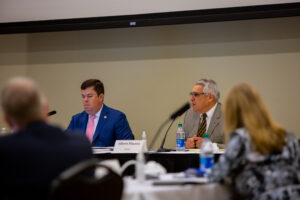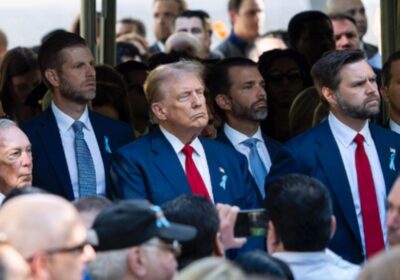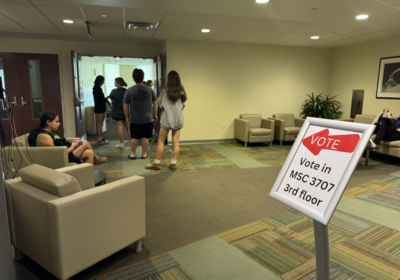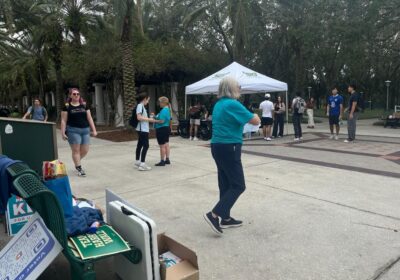Search committee outlines timeline for selecting new USF president

The engines are moving fast in the search for USF’s eighth president as the search committee begins drafting plans and tight deadlines to find candidates across the country for the role.
The 15-member committee met Wednesday morning at the St. Pete campus to outline the presidential search timeline for the next few months, with goals that a final selection will be made by early January. USF Trustee and Search Committee Chair Michael Griffin said the goal will be to present the final candidate to the Board of Governors (BOG) on Jan. 25, 2022.
The next steps of the search process will be to schedule the listening sessions with stakeholders, which Griffin said will start in the next few weeks. He said this step is critical for the search before they start advertising the job on the market.
The search will have a slight delay due to the upcoming holiday season, according to Alberto Pimentel, co-founder of SP&A Executive Search. He said the search committee and firm will focus on getting the candidate pool approved by the Board of Trustees (BOT) by mid-October and interviewing candidates by November.
He said the reason behind speeding up the process is to avoid exposing the candidates for a long period of time and giving them the opportunity to search for other opportunities in the meantime.
“We need to move quickly to decide what we’re going to do with those individuals [because you might] run the risk of losing the candidate that you want most. So we’re going to move quickly, but again, we want to move only as quickly as quality allows us to,” Pimentel said.
“Our goal is to wrap it up by January sometime. If we need to do it faster, we will, but [the committee] be part of that decision making. If we need to slow it down, we will, but you’ll be part of that decision making as well.”
The January deadline, however, will depend on the talent pool selected, Pimentel said. If the pool picked by the search firm lacks potential, Pimentel said they will repeat the process until the committee is satisfied with the selection.
SP&A Executive Search, a boutique women and minority-owned executive search firm, was chosen Aug. 24 by the BOT to lead the presidential search. The agency, led by Pimentel as the consultant, will divide the search process into four steps: fact-finding, recruitment, assessment and selection.
The first stage, also referred to as the fact-finding stage, will determine what the search committee is looking for in ideal candidates. Pimentel said listening and community outreach will be important when accounting for the opinions of students, faculty and staff as well as stakeholders on what qualities they want in the next president.
Listening sessions will be conducted throughout the process, according to Pimentel. The committee will meet with faculty, college deans, graduate and undergraduate students, members of the president’s cabinet, community leaders as well as USF affiliated groups, such as the USF Foundation and the Alumni Association, to gather diverse opinions.
Griffin and Pimentel will conduct the listening tour sessions. The information gathered, Pimentel said, will be used to educate the search committee and the firm on the preferences of the community as well as to develop the position description and candidate profile.
For larger groups, such as faculty, the sessions will last 45 minutes while smaller sessions will be 30 minutes.
The committee is expected to meet again in early October, according to Griffin. Future meetings will also feature public comments from the USF community.
A document containing the data gathered as well as what the university is looking for in its next president and what the position entails will be presented to the BOT for approval. Once it’s approved, the BOT will start advertising the position and the recruitment process.
The ads, mainly online, will circulate on a diverse selection of career websites aimed at Asian, Black and Hispanic people in higher education, as well as LGBT, Women and Native Americans. The job posting would stay in each portal for at least 30 days, with others running 60 days, according to Griffin.
Pimentel said the search for a new president has become more challenging over the years due to the added pressure when handling current events as well as identifying new streams of revenue different from state funds.
“The incredible pressure that these individuals have been under in the last two and a half years, everything from the pandemic, to the increased level of activism on campus to struggles with budget, to outright fights with legislature over funding, all of those things have contributed to individuals decided it’s time to step back,” Pimentel said.”
Despite the challenges, he said he’s confident in the search’s ability to find candidates best fit for the role.
For the second step, Pimentel said the search firm will use active recruitment as the main strategy throughout the process to find and select potential candidates. The process will identify targets, engage in conversations where they gauge interest and start getting future candidates involved in the process.
The stage, however, will require the active participation of the committee members and, potentially, the USF community. During this stage, the search firm will also work on identifying each prospect’s background that could be challenging or problematic before their name and information become public.
Once the second stage is completed, a pool of candidates will be available and an assessment will take place. The committee will start discussing potential candidates and their qualifications to narrow down their selections to three finalists.
During the third stage, a series of background checks will be repeatedly conducted, according to Pimentel.
Around three to four finalists will be picked for the final stage — the selection. The last stage will invite the top candidates to participate in interviews with the campus community. A survey will be available in which students, faculty and staff will be able to provide their opinion and their personal preferences.
Griffin said the survey will allow individuals to submit it anonymously.
Once the community is heard and their input accounted for, a survey will be available for each individual to provide their own opinion.
Then, the BOT will conduct individual interviews open to the public. After all interviews are completed, the board will make its choice and present it to the BOG.
The committee will be focusing its search on candidates who are willing to stay long term in the position. Griffin said the articulation of USF’s values and expectations for the position will be critical when selecting the best candidate for the role.
“I want someone who’s going to be here for the long term and not view this as a steppingstone to something else,” Griffin said. “I want someone who’s really going to embrace the community, get excited about our trajectory and be able to celebrate the success of being a top 25 public university.”







